The Evolution of Theopoetics
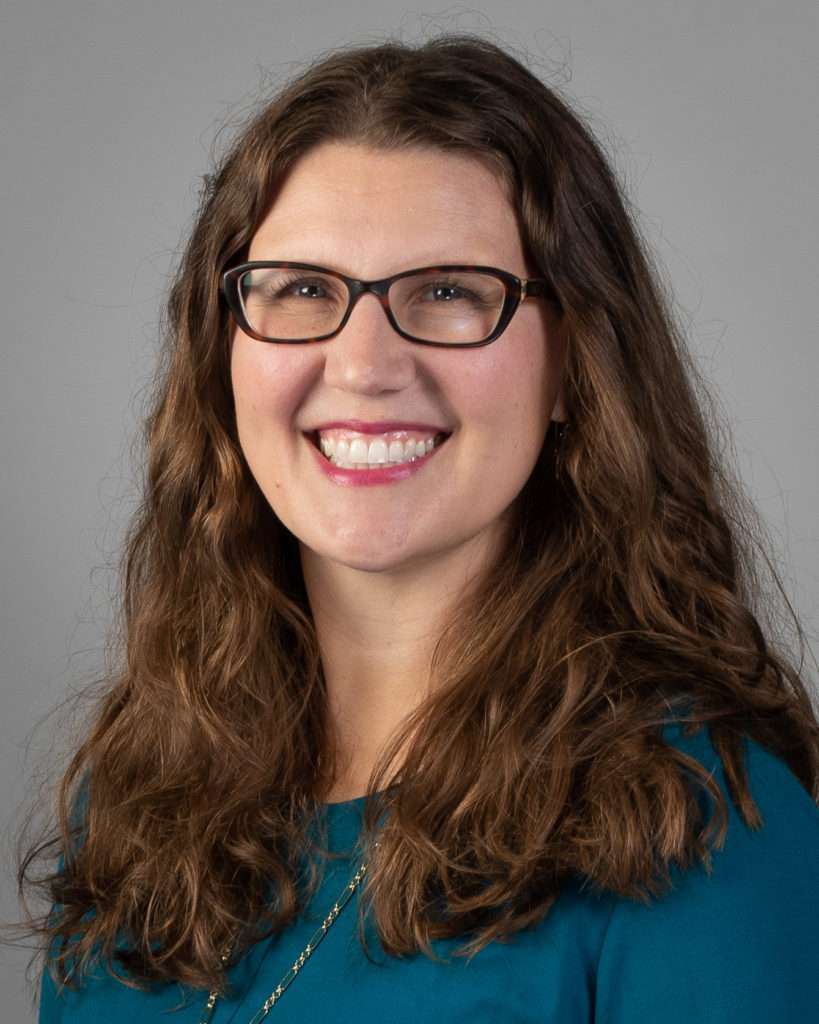
With new faculty members contributing to a burgeoning catalog of courses, it is no wonder that students from a wide variety of places, traditions, and backgrounds are finding their way to Bethany’s theopoetics program
Theopoetics is definitely a thing.
Drawing dozens of students from across the country and a diverse collection of denominations, theopoetics at Bethany has quickly grown from a handful of courses to a robust and varied program in which students — most of whom live at a distance and join classes over Zoom — can take courses not only in poetry and writing but also those that explore theater, various genres of fiction, the visual arts, and various aspects of the theoretical and methodological underpinnings of the field.
Students from a wide variety of denominations and traditions are finding their way to Bethany Theological Seminary to explore intersections of faith and the arts. The Master of Arts in Theopoetics and Writing and the Certificate in Theopoetics and Theological Imagination programs are now the Seminary’s fastest-growing offerings. With the addition of new faculty — and the continued contributions of Professor Emeritus Scott Holland — the program is expanding its scope. Embracing many forms of expression and inquiry, Bethany’s theopoetics program is expansive and varied.
Many who join the program are already accomplished writers, poets, visual artists, or performers. Others begin with a curiosity about a particular course, but find freedom and new possibilities in courses that give them the option of completing a creative project instead of an academic paper.
The students include adults who already have very full lives — teachers, non-profit leaders, pastors, and stay-at-home parents — who are willing to go to considerable lengths to sharpen their skills as writers and artists, create community with people who have similar interests, and engage challenging material.
The central focus of theopoetics is on the importance of storytelling and narrative — in all its various forms — and how stories can enrich audiences’ understanding of the divine. As an added bonus, the courses in the program allow students to explore an astonishing variety of texts — from science fiction television shows to novels to the art and architecture found at cathedrals.
“I think students are often pleasantly surprised by how interesting and fun theopoetics courses are,” says Joelle Hathaway, assistant professor of theological studies and director of the theopoetics program. “Our students are often already quite knowledgeable about literature and the arts, but the theopoetics program provides them an opportunity to go deeper and consider material they find fascinating from different angles.”
Hathaway, who joined the Bethany faculty in the fall of 2020, teaches courses on such diverse topics as the poetry of Wendell Berry and the aesthetics of European cathedrals. She says that many students are initially intrigued by the unusual course topics or by the opportunity, in some classes, to hone creative skills while growing intellectually. But the success of the program runs much deeper than what can be gleaned from course descriptions.
“There is a deep investment in students at Bethany. Faculty give them a lot of feedback, and work closely with students to help them thrive. One of the joys of serving as director of this program is that I get to hear students gush about my colleagues and their classes.”
The Power of Imagination
Dr. Margaret “Maggie” Elwell, the Seminary’s newly hired assistant professor of peace studies, contributes to the theopoetics program as well. As a scholar who studies narrative and the critical theories of violence, she sees the study of literary texts as an important part of theological education, and a place where theopoetics and peace studies can intersect.
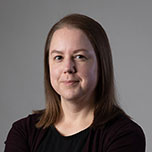
“Reading a novel allows the reader to think another person’s thoughts, and see the world from another’s perspective,” she says. “I think gaining a deeper understanding of the experience of violence is necessary before we can envision peace. And I think studying literature is important for students’ intellectual growth and helpful as they imagine putting their education to practical use.”
Elwell believes that studying fictional narratives can help students better understand the causes of violence, and that such study can encourage them to question societal norms and seek solutions to systemic problems. A fiction writer herself, Elwell also sees that students in theopoetics benefit from the experience of completing creative projects, because artistic expression can help to build empathy and help the creator imagine new realities.
“Creative projects help students to respond to problems they encounter,” she says. “We all know that there are violent events happening in our communities, but creating art can help us imagine a different reality.”
Students in Elwell’s classes sometimes encounter upsetting material, and some choose to create creative projects that focus on subjects related to trauma. Elwell believes that it is important to provide these students with support as they confront fictional narratives that may run parallel to their own experiences, and to push those students to engage as best they can with topics they find difficult.
“As a scholar of peace studies, I want students to take the causality of violence seriously, I want them to consider the roots of the problem, and to question the status quo,” she says. “Theopoetics is helpful because students can see how theoretical ideas play out in narratives. Studying stories can help students understand the points of view of characters very different from themselves, and it can even help them to envision solutions to societal problems.”
A Different Lens
Dr. Tamisha Tyler, visiting professor of theology and culture and theopoetics, wrote her dissertation on theopoetics methods. Tyler will be at Bethany for two years, thanks to postdoctoral fellowship from the Louisville Institute. She is delighted that her first full-time faculty position allows her to teach advanced courses that draw directly on her passions and expertise — an opportunity that is often reserved for senior professors. And at Bethany her particular interests — which include the novels of Octavia Butler and Afrofuturism — are topics that many students are drawn to.
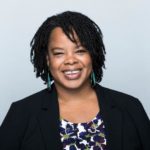 “At Bethany, I don’t have to convince anyone that this subject matter is important and relevant,” she says. “Students are excited to explore these texts and how they intersect with theology and faith. They are ready to go there.”
“At Bethany, I don’t have to convince anyone that this subject matter is important and relevant,” she says. “Students are excited to explore these texts and how they intersect with theology and faith. They are ready to go there.”
The students in Tyler’s classes are comfortable studying a novel that is not explicitly Christian and exploring how it can connect to their own traditions and ideas. The imagination in science fiction can encourage students to reexamine their own assumptions and biases, which can lead to new expressions of faith and understanding of God.
Tyler offers a reminder, however, that the study of theopoetics is unlikely to lead to certainty, and earning a degree doesn’t mark the end of an individual’s search for meaning.
“People go to school to know things, but theopoetics is about things that are open to multiple interpretations,” she says. “The best I can do is to articulate sensibilities, and hopefully that will help students discover how to make meaning for themselves.”
A Broader Understanding
As Bethany’s theopoetics program continues to grow, the Seminary attracts a wide range of students. Recent classes have included recent college graduates, those who are already serving in pastoral roles and want to enhance their creative skills, and those who already hold advanced degrees — including master’s or doctoral degrees in creative fields — who want to deepen their theological understanding, as well as students who wish to link their artistic expressions more closely to faith.
Already a highly ecumenical program, the faculty members believe that the program has the potential to appeal to students from an even wider variety of traditions. And although writing remains central to the program, the professors are intrigued by the possibility of including more visual arts, theater, and music in the program. After all, the arts are already an integral part of worship in the Church of the Brethren and other denominations.
“It’s interesting to me that theopoetics is so often talked about as if it’s a separate thing or a new thing at Bethany,” notes Hathaway. “But actually, poetry and the arts have always been a part of the church. A pastor is a poet and a writer. A pastor is a public speaker and often a singer. Pastors engage with church architecture and visual art. So this is not entirely new, and it’s not really a break with tradition. What we provide is a more expansive way of thinking and talking about creative expressions of faith.”
This article was originally published in the Fall/Winter 2023 issue of Wonder & Word magazine.

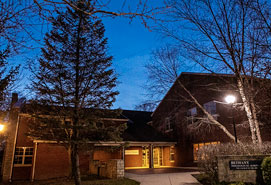



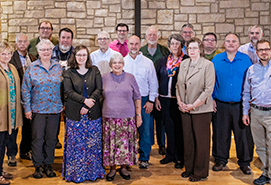


 “At Bethany, I don’t have to convince anyone that this subject matter is important and relevant,” she says. “Students are excited to explore these texts and how they intersect with theology and faith. They are ready to
“At Bethany, I don’t have to convince anyone that this subject matter is important and relevant,” she says. “Students are excited to explore these texts and how they intersect with theology and faith. They are ready to 
 Green Circle: Bethany invests in 100% renewable energy.
Green Circle: Bethany invests in 100% renewable energy.